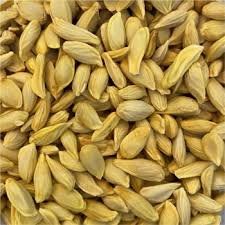Let’s explore the potential ways you can use lemon seeds, separating the practical from the perhaps overhyped.
Potential Uses for Lemon Seeds
Here are the most common ways people use lemon seeds, based on the claim:
1. Growing Your Own Lemon Tree
This is the most popular and “valuable” use.
-
How-to: Rinse the seeds and plant them in a small pot with moist, well-draining soil. Keep the soil damp and in a warm, sunny spot. With patience, you can grow a lovely (though likely non-fruiting for several years) lemon tree.
-
The Reality: While rewarding, trees grown from supermarket lemon seeds often don’t produce fruit true to the parent, and can take 7+ years to fruit, if at all. Grafted trees are more reliable for fruit production.
2. Making a Natural Thickener or Pectin Source
This is the most likely “worth their weight in gold” kitchen trick.
-
How-to: Lemon seeds contain pectin, a natural soluble fiber used to thicken jams and jellies. You can tie a handful of clean seeds in a small cheesecloth pouch and simmer it with your homemade jam. The pectin will be released, helping it set.
-
The Reality: This is a genuine, effective, and zero-waste technique for home cooks making jams without commercial pectin.
3. Creating a Beauty Toner or Skin Treatment
Some natural beauty advocates use lemon seed water.
-
How-to: Soak crushed or blended lemon seeds in water or rosewater overnight, then strain. The resulting liquid can be used as a mild, astringent toner.
-
The Reality: Use with caution. Lemon can be very acidic and may irritate or photosensitize the skin, making it more prone to sunburn. A patch test is essential.
4. As a Source of Nutrients (in Blended Form)
The seeds contain fiber, trace minerals, and salicylic acid.
-
How-to: If you have a high-powered blender, you can blend a few seeds into your smoothie. They will be pulverized and add a slight bitter note.
-
The Reality: They are not poisonous, but they are very hard and contain trace amounts of salicylic acid (the active component in aspirin). Consuming a few is fine for most people, but eating large quantities is not recommended, especially for those with allergies or on certain medications.
The Bottom Line
The statement “worth their weight in gold” is a bit of an exaggeration, but it points towards a valuable zero-waste mindset.
The most practical and truly “golden” use for the average person is #2: as a natural thickener for jams. For gardeners, #1: growing a tree is a rewarding long-term project.
So, while you don’t need
